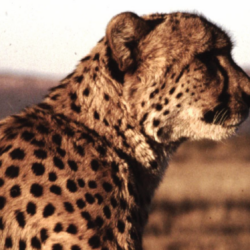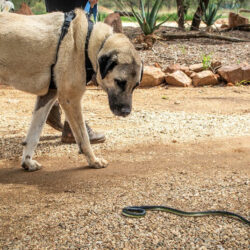CCF’s Human-Wildlife Conflict Field Team is Back in Action
-
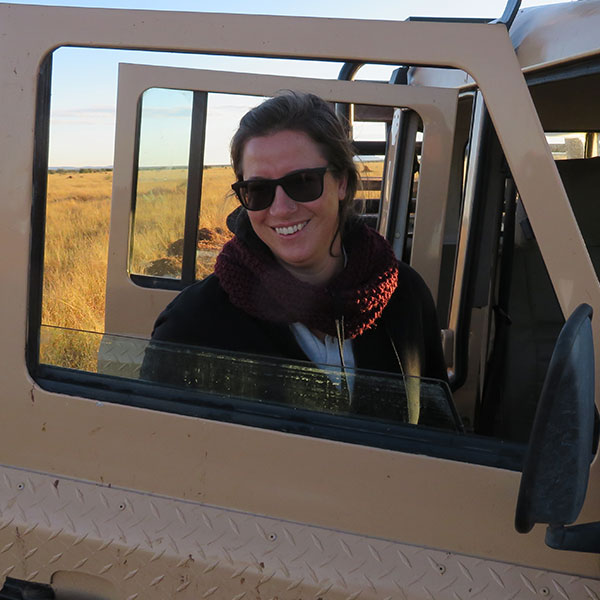
- by Nadja LeRoux June 5, 2020
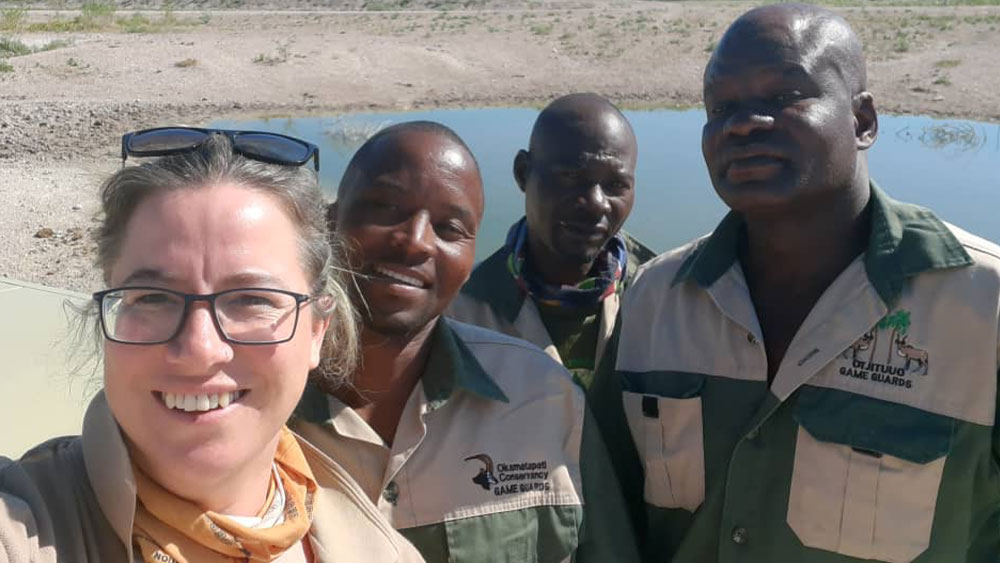
The human-wildlife conflict field team was registered on May 15th as essential services by the Ministry of Environment, Forestry and Tourism. We can continue our important role as support for rural farmers during the COVID-19 pandemic and beyond. The potential for an increase in poaching and retaliatory killing of carnivores is concerning to CCF’s communal conservation partners throughout Namibia. Communities are facing challenges in a lack of presence on-site and due to financial losses from Tourism they are facing financial pressures. Eighty-six registered communal conservancies have been left with little to no income to carry out vital activities. As we move past the government shutdown these communities will need CCF more than ever.
On our first day out, CCFs field team (Game Guards: Nelson, Izapi, Uno and me – see top photo) operated in the Okakarara Communal Conservancies where we responded to farmers’ reports of wildlife conflict with carnivores. Of particular concern, the denning season for the endangered African painted dog has just started and reports are coming in all over about sightings of the canid, and generally conflict follows.
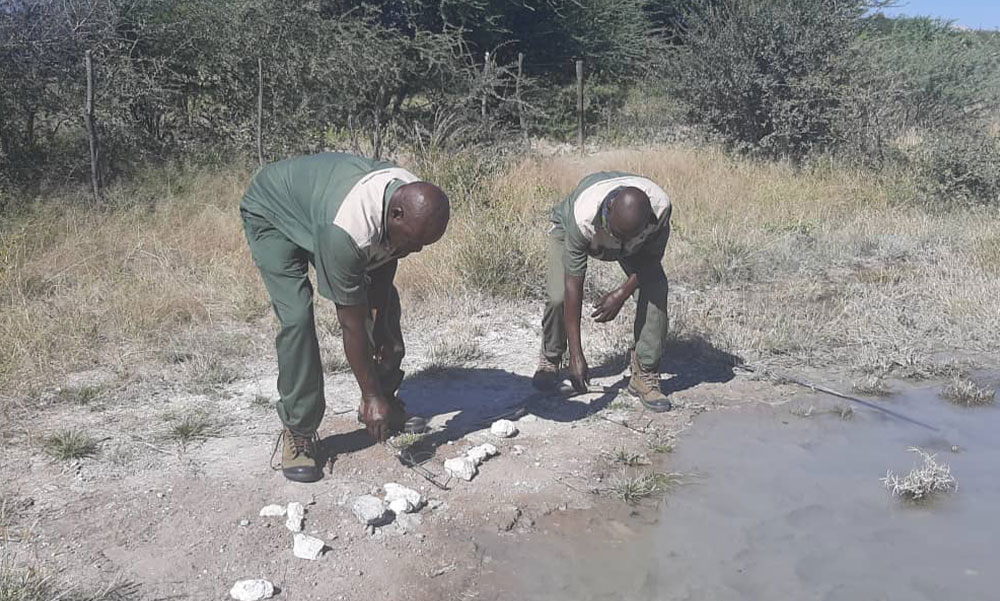
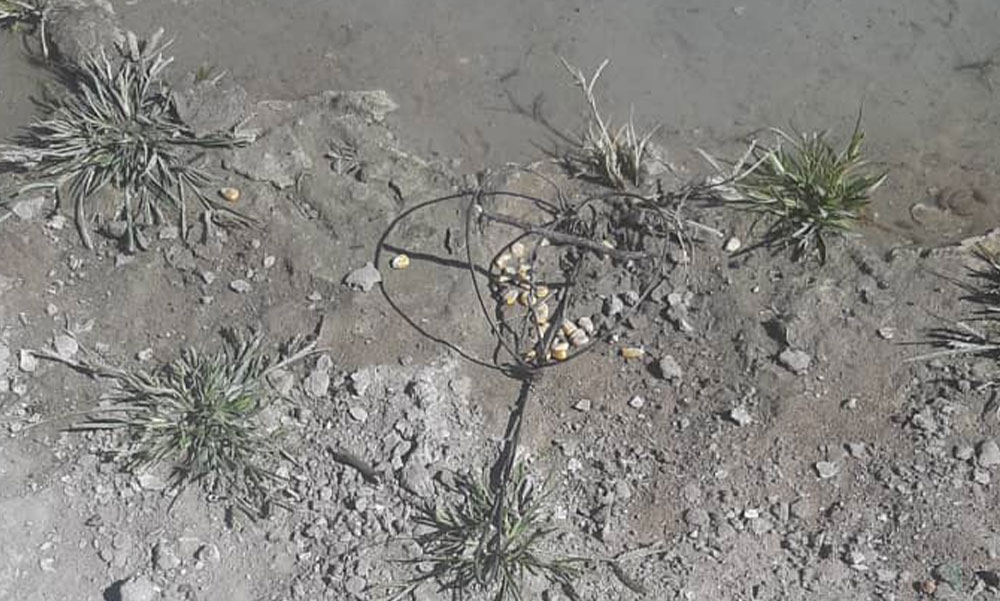
Snaring continues to be a problem we are coming across. Snares are strategically placed next to places like a water point that’s leaking (more on that below) to catch animals that visit. These particular snares (see photo above) are set for birds or small mammals like rabbits, which are a shared food source for humans and jackals alike. The team educates communities on wildlife ecology and the negative effect of snaring species that are a food source to some of the smaller carnivores like jackal and caracal. When faced with lack of wild prey species these small predators may turn to predation on farmers’ small stock. As general practice, the team removes all the snares we find. They can pose a lethal threat to larger wildlife species causing damage to limbs that can become infected.
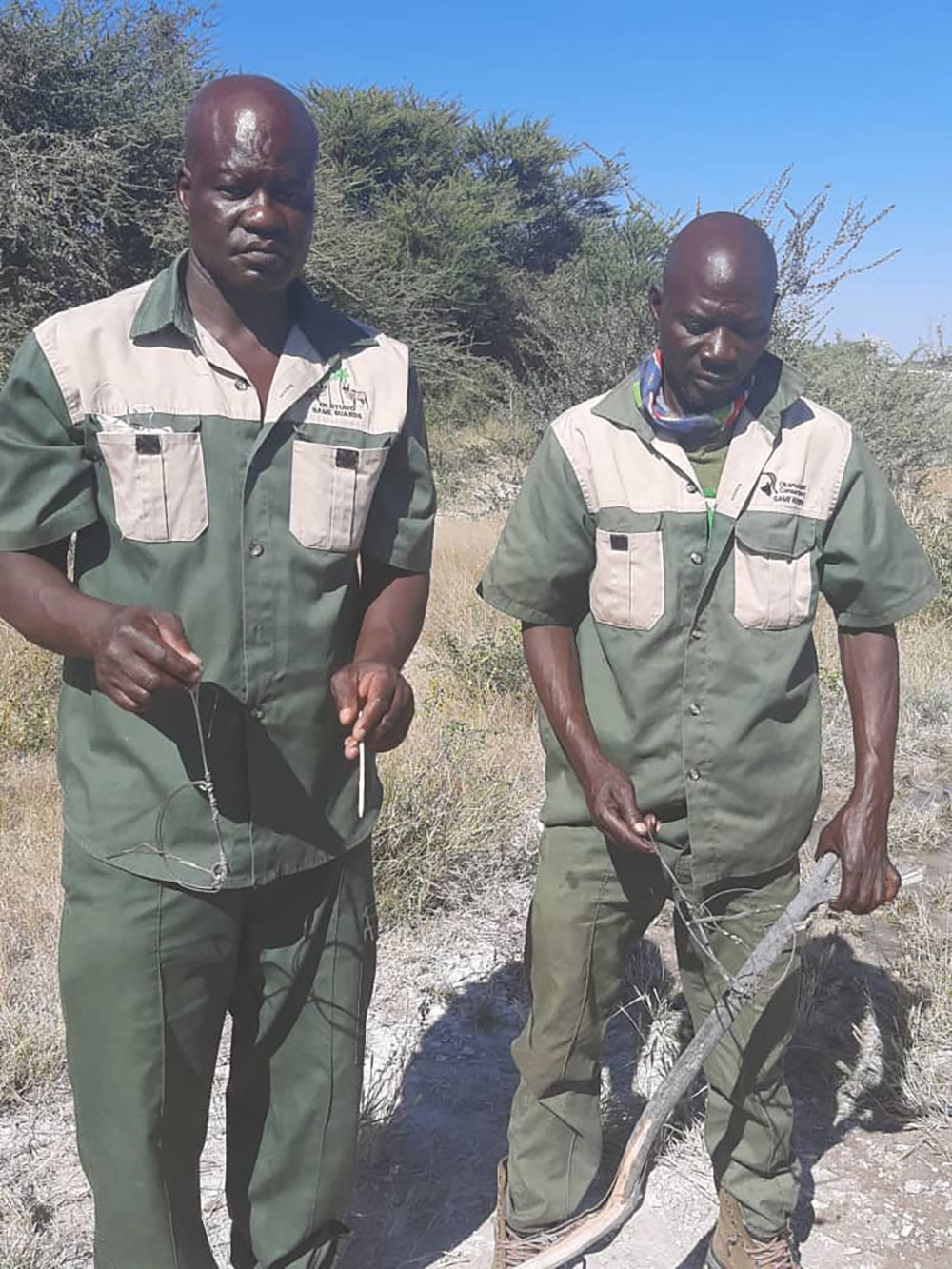
Broken water pipes are an important source to look for spoor as wildlife will visit them regularly as the pans that held water from the rains have started to dry out. At this point we found spoor of Leopard and Brown Hyena as well as Kudu with young ones.
Wildlife sighting
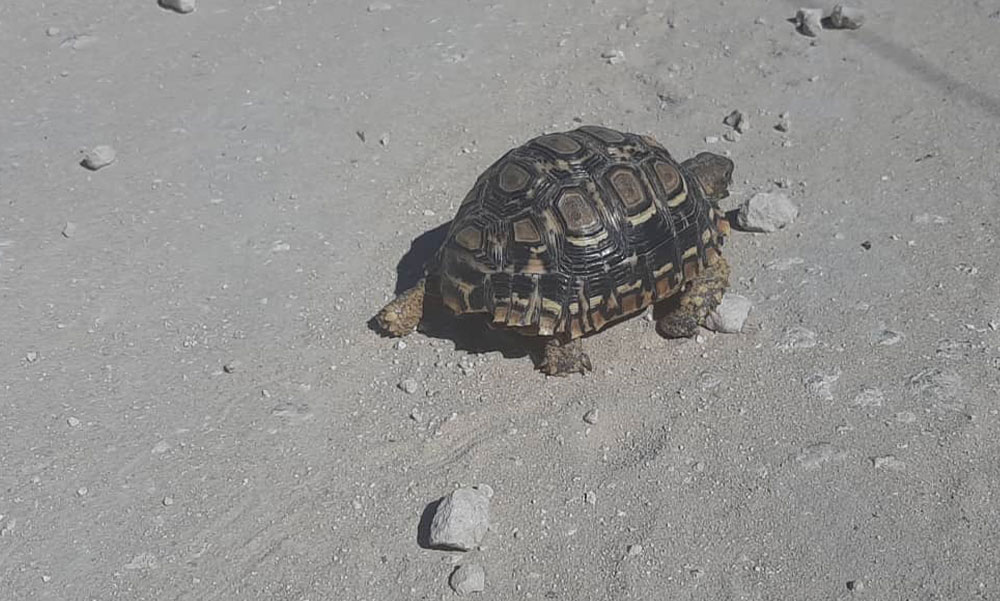
As we travel it’s always fun coming across some of our smaller species ❤ tortoise nests are often raided by people for their eggs as a source of food. They’re a protected species by Namibia’s Government and illegal to have as pets.
Related Reading
-
December 4, 2024
Double Your Donation for the Cheetah -
June 15, 2024
Snake Aversion Training


